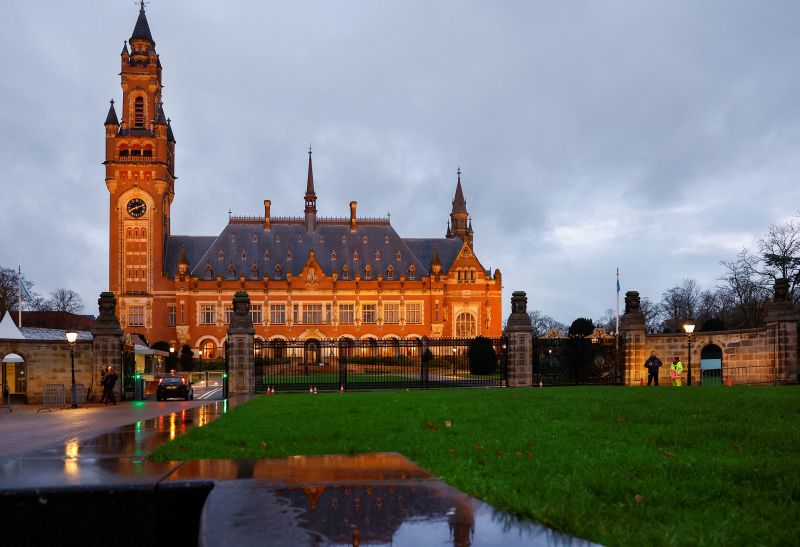Ireland has joined South Africa’s genocide case against Israel, the International Court of Justice announced Tuesday morning.
In a brief press statement, the ICJ said that Ireland had on Monday joined Nicaragua, Colombia, Mexico, Libya, Bolivia, Turkey, the Maldives, Chile, Spain, and the State of Palestine in asking to intervene in the case.
South Africa first filed its case against Israel in December 2023, accusing the country of committing genocide during its ongoing offensive in the Gaza Strip. Israel has vehemently denied that it is engaged in genocide and continues to fight South Africa in court.
Ireland’s declaration of intervention puts forward no further allegations against Israel, instead focusing on the legal framework for its involvement in South Africa’s case. Noting that the legal definition of genocide requires an “intent to destroy, in whole or in part” a target population, the document submitted by Ireland argues that intent might be inferred “in any case where a reasonable person would have foreseen that” genocide is “the natural and probable consequence of the acts of the perpetrator.”
“Ireland respectfully submits that the perpetrator does not need to have, as his or her purpose, the commission of the crime of genocide when committing any one or more of the material elements of the crime,” the declaration continues. “The crime may also be committed where a perpetrator – regardless of his or her purpose – knows (or should know) that the natural and probable consequence of these acts is either to destroy or contribute to the destruction of the protected group … and proceeds regardless.”
The Irish government previously announced its plan to intervene in the case in March 2024. Its intervention marks the latest development in its increasingly outspoken criticism of Israel’s war conduct.
Ireland had consistently criticized Israeli policies in the occupied West Bank and Gaza before the Hamas attacks on October 7, 2023, which killed roughly 1,200 people and saw 250 taken hostage.
Since Israel launched its military campaign in Gaza in response, Irish politicians across the political spectrum and the public have expressed concern over what has been largely viewed as a heavy-handed response. As of Tuesday, Israeli attacks have killed at least 45,885 people in Gaza since October 7, 2023, according to Gaza’s health ministry.
Relations between Ireland and Israel reached a nadir in December after Israel shuttered its embassy in Dublin. Israeli Foreign Minister Gideon Sa’ar accused Ireland of “antisemitic rhetoric” in an official statement, claiming that “Ireland has crossed every red line in its relations with Israel.”
At the time, Irish Prime Minister Simon Harris described Israel’s decision as “deeply regrettable.”
Much of Ireland’s sympathy for the plight of Palestinians emerges from the country’s centuries-old subjugation by its British neighbors. In Northern Ireland, which is still under British rule, nationalist communities regularly fly the Palestinian flag – and some loyalists fly the Israeli flag in response.
Israel’s current president, Isaac Herzog, has Irish roots. His father, also a famous Israeli politician, was born in Belfast. Herzog’s grandfather, Isaac HaLevi Herzog, was Chief Rabbi of the Irish Free State – the precursor to the current Republic of Ireland – and later served as Chief Rabbi of Israel.

